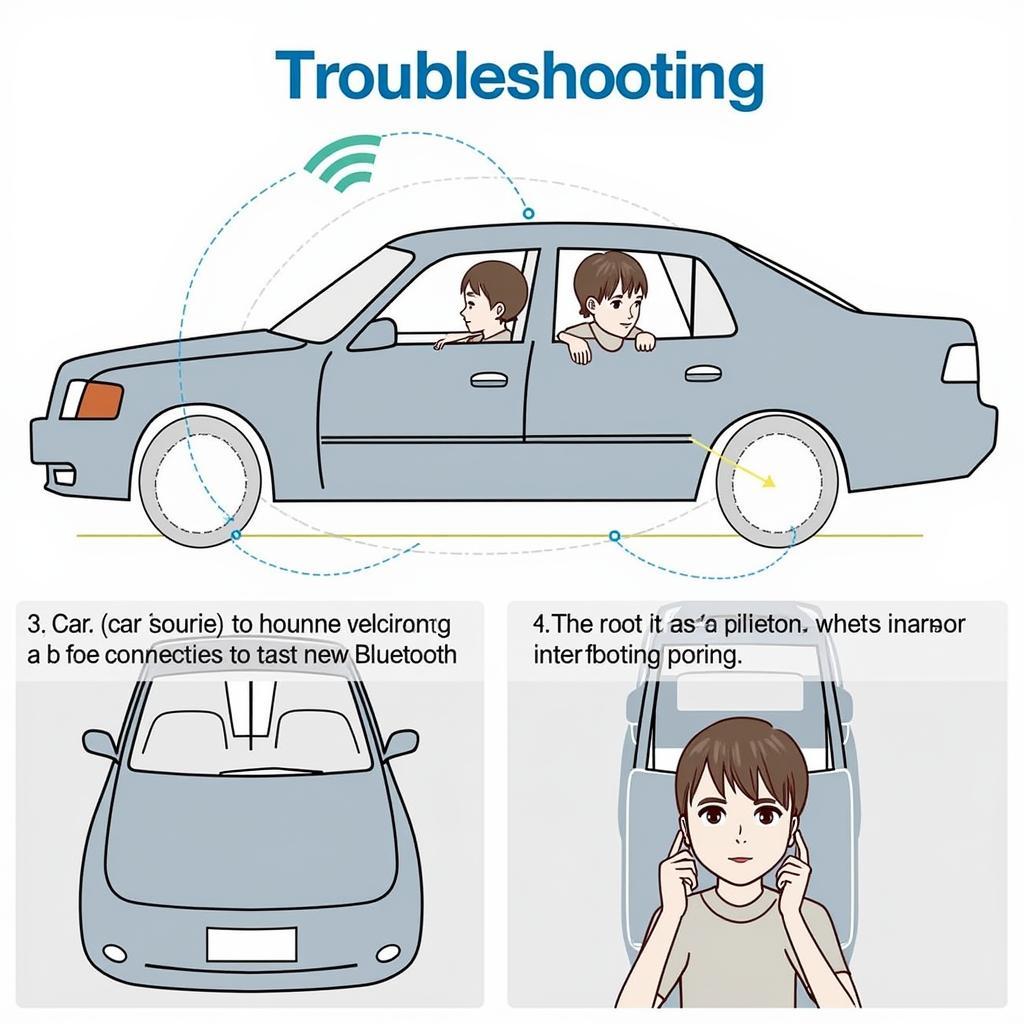The 2002 Civic brake warning light can be a frustrating issue, leaving drivers unsure of the problem and potential solutions. This article provides a comprehensive guide to understanding, diagnosing, and fixing the brake warning light on your 2002 Honda Civic. We’ll explore common causes, from simple fixes to more complex problems, empowering you to address this issue effectively.
Understanding Your 2002 Civic’s Brake System
The brake warning light is designed to alert you to potential problems within your Civic’s braking system. It’s crucial to understand that this light can indicate several issues, not just low brake fluid. Ignoring the warning light can lead to significant safety risks and costly repairs. The brake system in your 2002 Civic is a complex network of components, including the master cylinder, brake lines, calipers, rotors, drums, and brake shoes. A malfunction in any of these components can trigger the warning light.
Common Causes of the 2002 Civic Brake Warning Light
Why is my 2002 Civic brake warning light on? Several factors can trigger this warning, ranging from simple to complex. Here are some of the most common culprits:
-
Low Brake Fluid: This is the most frequent cause. Check your brake fluid reservoir. If it’s low, top it off with the correct DOT 3 or DOT 4 brake fluid specified in your owner’s manual. However, consistently low brake fluid suggests a leak, requiring professional inspection.
-
Worn Brake Pads: Brake pads wear down over time. Thin brake pads activate a sensor that triggers the warning light.
-
Faulty Brake Light Switch: This switch activates your brake lights when you press the brake pedal. A malfunctioning switch can sometimes trigger the brake warning light as well.
-
ABS Issues: If your 2002 Civic has Anti-lock Brakes (ABS), a problem with the ABS system can illuminate the brake warning light. This often requires specialized diagnostic equipment.
-
Parking Brake Engaged: Sometimes, simply forgetting to disengage the parking brake can cause the light to stay on.
Troubleshooting the 2002 Civic Brake Warning Light
If your brake warning light is on, here’s a step-by-step guide to help you troubleshoot the issue:
-
Check the Parking Brake: Ensure the parking brake is fully disengaged.
-
Inspect Brake Fluid Level: Check the brake fluid reservoir. If it’s low, add the correct brake fluid.
-
Inspect Brake Pads: Visually inspect your brake pads for wear. If they appear thin, it’s time for a replacement.
-
Check Brake Light Operation: Verify that your brake lights are working correctly. If they aren’t, the brake light switch might be faulty.
-
Seek Professional Help: If the above steps don’t resolve the issue, it’s essential to take your Civic to a qualified mechanic for a thorough diagnosis.
Remote Diagnostics and Programming for Your 2002 Civic
As an expert in automotive electrical engineering specializing in remote diagnostics, I can often pinpoint the cause of a brake warning light issue remotely. Using specialized software, we can access your vehicle’s computer system to identify fault codes and other diagnostic information. This can save you time and money by narrowing down the problem before you even bring your car to a shop. Furthermore, remote programming can often address specific software-related issues within your 2002 Civic’s brake system.
“Remote diagnostics can be a game-changer,” says John Smith, ASE Certified Master Technician. “It allows us to quickly and accurately identify problems, even remotely, which is particularly helpful for drivers in remote areas or with limited mobility.”
Conclusion
The 2002 Civic brake warning light shouldn’t be ignored. Understanding its potential causes and following the troubleshooting steps outlined above can help you address the issue effectively. If the problem persists, seeking professional help, including remote diagnostics and programming, can provide a quick and efficient solution. Remember, maintaining a healthy brake system is crucial for your safety and the longevity of your 2002 Honda Civic. Don’t delay in addressing this important warning signal.
FAQ
-
Can I drive my 2002 Civic with the brake warning light on? It’s not recommended. The light indicates a potential problem with your brakes, which could compromise your safety.
-
How much does it cost to fix a brake warning light issue? The cost varies depending on the underlying cause, ranging from a simple top-up of brake fluid to more extensive repairs.
-
How often should I check my brake fluid level? It’s a good practice to check your brake fluid level at least once a month.
-
What type of brake fluid does a 2002 Civic use? Consult your owner’s manual for the specific type of brake fluid recommended for your 2002 Civic, usually DOT 3 or DOT 4.
-
How long do brake pads last on a 2002 Civic? Brake pad lifespan depends on driving habits, but they typically last between 30,000 and 70,000 miles.
-
What is ABS, and how does it affect my brakes? ABS stands for Anti-lock Braking System. It helps prevent wheel lockup during hard braking, improving control and stability.
-
Can I replace my brake pads myself? While it’s possible, replacing brake pads requires some mechanical knowledge. If you’re unsure, it’s best to consult a professional.

